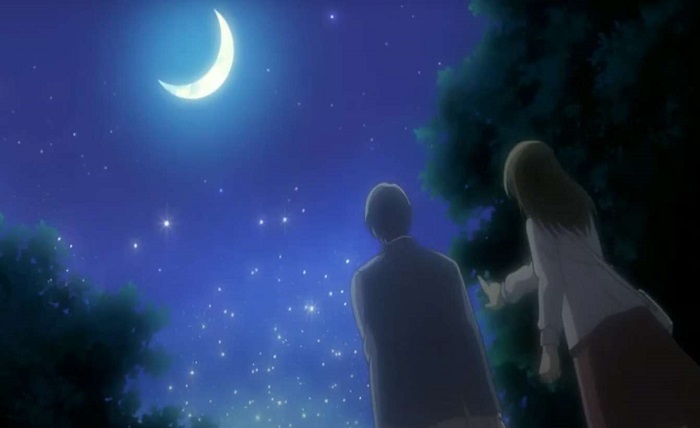Isn’t the Moon Lovely? The Hidden Meaning and Cultural Importance of This Phrase

The moon, with its ethereal glow and captivating presence, has inspired poets, artists, and lovers throughout history. In Japanese culture, the moon holds a particularly special place, often associated with beauty, romance, and unspoken emotions. One phrase that perfectly embodies this sentiment is: “Isn’t the moon lovely?”
While seemingly simple, this phrase carries a deeper meaning, particularly within the context of Japanese communication. It’s not just a statement about the moon’s beauty; it’s a veiled way of expressing love, affection, or longing.
Tracing the Origins:
The origins of this phrase are debated, with some attributing it to the writings of Japanese novelist Natsume Soseki. The story goes that Soseki, during his time as an English teacher, witnessed a student struggling to translate “I love you” into Japanese. Soseki, recognizing the potential awkwardness of a direct translation, suggested the student use the phrase “The moon is beautiful, isn’t it?” as a more nuanced and poetic way to express their feelings.
While the historical accuracy of this anecdote remains uncertain, it beautifully illustrates the cultural significance of this phrase. In Japan, direct expressions of love can sometimes be considered blunt or forward. Instead, using indirect language and symbolism allows individuals to convey their emotions subtly and poetically.
Cultural Importance:
The beauty of “Isn’t the moon lovely?” lies in its versatility. It can be used in various contexts, from a romantic declaration to a simple expression of admiration for the moon’s beauty. It can be used to initiate a conversation, deepen a connection, or simply express a shared appreciation for the natural world.
This phrase also reflects the Japanese cultural values of omotenashi (hospitality) and honne and tatemae (inner and outer feelings). It allows individuals to express their true feelings (honne) indirectly while maintaining social harmony and cultural expectations (tatemae).
Beyond Romance:
While often associated with love, “Isn’t the moon lovely?” can carry other meanings depending on the context. It can be used to express:
- Gratitude and appreciation: For example, a child might say this to their parents after receiving a gift.
- A sense of wonder and awe: When witnessing a particularly breathtaking moonlit night.
- Loneliness or longing: For someone who is far away or no longer with us.
Modern Applications:
This phrase continues to hold relevance in contemporary Japanese society. It can be found in popular culture, from anime and manga to music and movies. It’s also used in everyday interactions, adding a layer of poetry and emotional depth to communication.
Conclusion:
“Isn’t the moon lovely?” is more than just a beautiful phrase. It’s a window into Japanese culture and the way emotions are expressed. It reminds us of the power of indirect language and the beauty of expressing our feelings through shared experiences and unspoken emotions.





